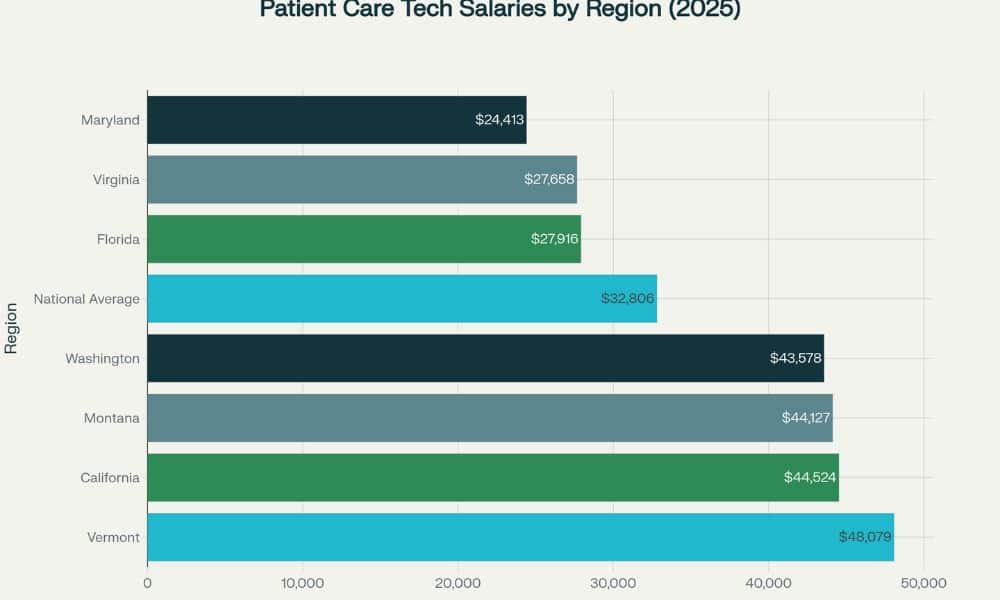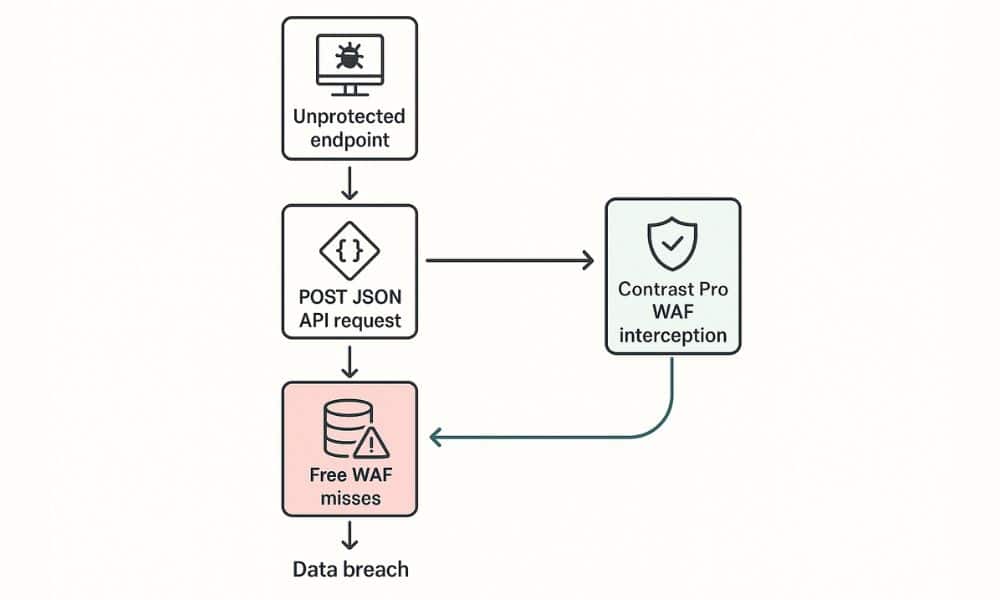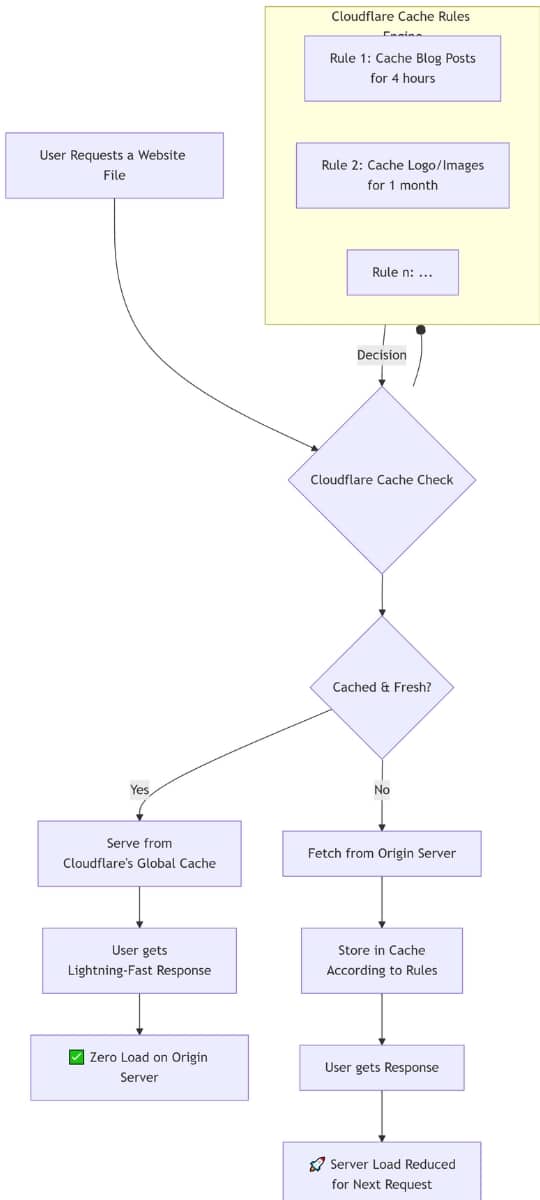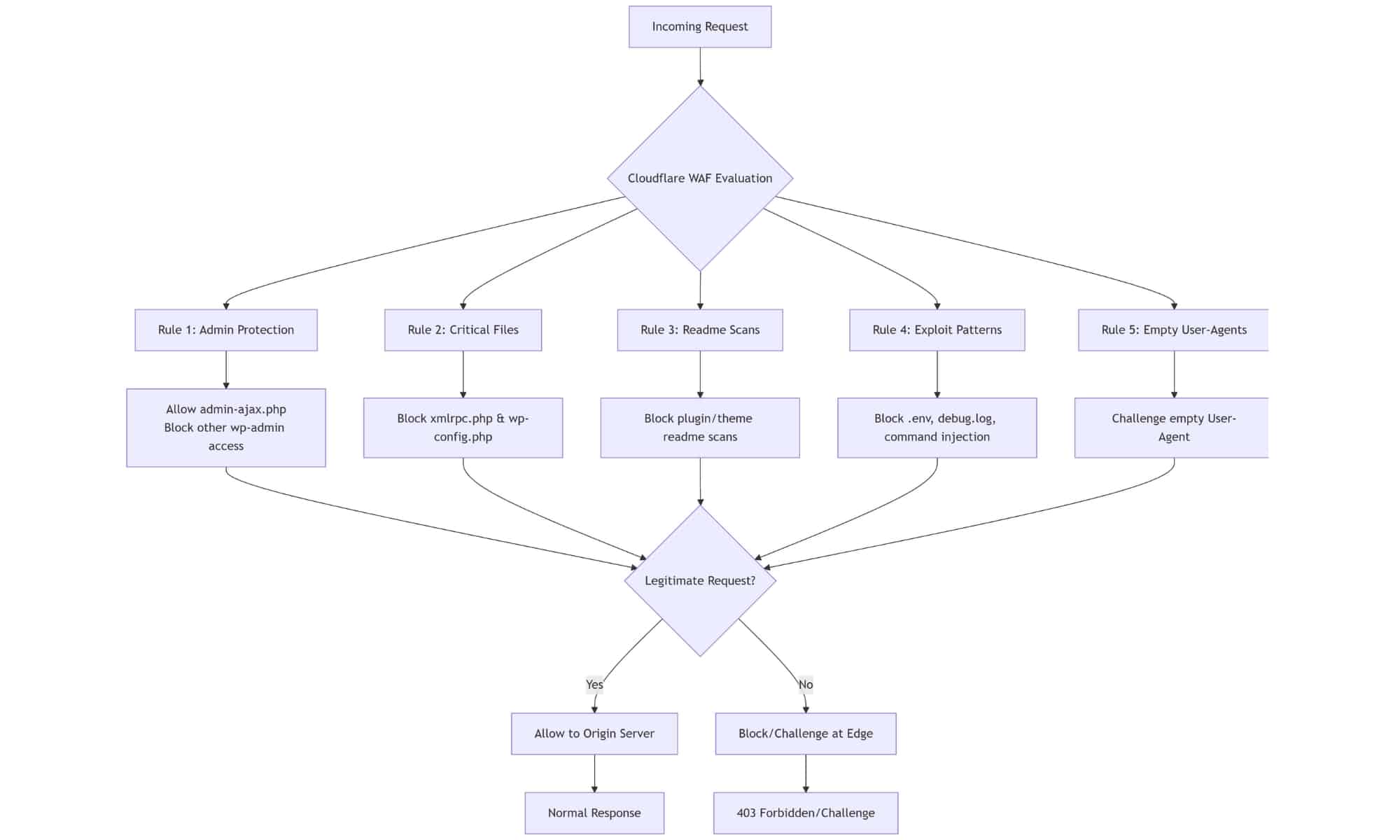
Are you considering a career that combines meaningful patient care with strong job security and competitive pay? Patient Care Technician jobs represent one of the fastest-growing opportunities in today’s healthcare landscape. With healthcare accounting for 88% of all private sector employment growth in July 2025, PCTs find themselves at the center of an industry boom that shows no signs of slowing down.
The demand for skilled patient care technicians has never been higher. From bustling city hospitals to rural clinics, healthcare facilities across America are actively recruiting qualified PCTs to support their nursing teams and provide essential patient support. But what does this mean for your career prospects, and how much can you realistically expect to earn in this vital healthcare role?
Whether you’re just starting your healthcare journey or looking to transition into a stable, rewarding field, understanding the current job market and salary expectations for patient care technicians will help you make informed decisions about your future.
Current Job Market for Patient Care Technicians
The healthcare industry continues its remarkable expansion, with Patient Care Technician jobs leading the charge in employment opportunities. According to the Bureau of Labor Statistics, employment for nursing assistants, orderlies, and attendants—which includes PCTs—is projected to grow by 8% through 2030, significantly faster than the average for all occupations.
This growth translates into real opportunities. Healthcare added 73,300 jobs in July 2025 alone, representing the sector’s dominance in job creation nationwide. For PCTs specifically, this means approximately 117,800 job openings become available each year, driven by both new positions and replacements for workers who retire or advance their careers.
The aging American population serves as the primary driver behind this demand surge. Think of it like a wave building strength—as baby boomers require more healthcare services, facilities need more hands-on staff to provide daily care, monitor vital signs, and assist with basic medical procedures. Patient care technician salaries reflect this high demand, with competitive wages that vary significantly by location and specialization.
Salary Breakdown: What PCTs Earn Across America
Understanding patient care technician salaries requires looking at multiple data sources and regional variations. According to 2025 salary data, the national average for PCTs ranges from $32,800 to $38,500 annually, depending on the source and methodology used.
ZipRecruiter reports that PCTs earn an average of $32,806 annually, with salaries typically ranging between $24,000 and $43,000 yearly. The hourly rate averages $15.77 per hour across the United States. However, these figures tell only part of the story—location plays a crucial role in determining actual earnings.
Regional salary differences are striking. Washington state leads with an average annual salary of $43,578, while PCTs in Montana earn approximately $44,127. California offers competitive wages at $44,524 annually, reflecting the state’s higher cost of living and strong demand for healthcare workers.
On the lower end, states like Florida ($27,916), Virginia ($27,658), and Maryland ($24,413) offer more modest compensation packages. These variations often correlate with local economic conditions, healthcare funding levels, and competition for skilled workers.

Top-Paying States and Cities for PCTs
If maximising your earning potential matters most, certain locations stand out as patient care technician salary hotspots. The highest-paying states for PCTs include Vermont ($48,079), California ($44,524), and Montana ($44,127), where annual salaries can exceed the national average by $10,000 or more.
At the city level, Rochester, New Hampshire tops the list with average salaries of $38,927 annually. Fargo, North Dakota follows closely at $36,502, while Troy, New York rounds out the top three at $35,667. These cities often combine strong healthcare systems with reasonable living costs, creating attractive opportunities for PCTs seeking financial stability.
Have you considered how geography might impact your career trajectory? Beyond raw salary numbers, successful PCTs factor in housing costs, state taxes, and quality of life when choosing where to practice. A $40,000 salary in a low-cost area might provide more purchasing power than $50,000 in an expensive metropolitan region.
Healthcare Settings and Specialisation Impact on Pay
Patient Care Technician jobs exist across diverse healthcare environments, each offering different salary ranges and advancement opportunities. Government positions typically offer the highest compensation, with average annual salaries reaching $43,410. Private hospitals and nursing care facilities also provide competitive wages, often supplemented by comprehensive benefits packages.
Specialization can significantly boost earning potential. Emergency room technicians earn an average of $35,967 annually, while medical service technicians command $37,943. Behavioral health technicians average $34,611, and clinical technicians earn approximately $35,760. These specialized roles require additional training but offer higher compensation and unique career paths.
The variety resembles a career buffet—you can sample different specialties until finding your perfect match. Some PCTs thrive in fast-paced emergency departments, while others prefer the steady rhythm of long-term care facilities. Each setting offers distinct challenges, learning opportunities, and compensation structures.
Career Advancement and Growth Opportunities
One of the most attractive aspects of patient care technician careers lies in their potential for growth and advancement. Many PCTs use their role as a stepping stone to more advanced positions, leveraging their hands-on experience and additional certifications to climb the healthcare career ladder.
Common advancement paths include becoming Licensed Practical Nurses (LPNs) or Registered Nurses (RNs), which typically require 12-18 months of additional education but can double or triple earning potential. Some PCTs specialise in areas like dialysis care, telemetry monitoring, or phlebotomy, each offering increased responsibilities and higher wages.
The certification pathway also affects patient care technician salaries. Entry-level positions may start around $30,260 annually, but experienced, certified PCTs can earn up to $48,000 or more. Additional certifications in electrocardiography (EKG), phlebotomy, or specialized patient populations can add $2,000-$5,000 to annual earnings.
Job Security and Industry Outlook
Healthcare employment continues demonstrating remarkable resilience compared to other industries. The World Economic Forum’s 2025 Future of Jobs Report specifically highlights care economy positions, including personal care aides and nursing professionals, among the roles expected to experience significant growth over the next five years.
For PCTs, this translates to exceptional job security. Unlike many occupations vulnerable to automation, patient care requires human compassion, critical thinking, and hands-on skills that technology cannot replace. The intimate nature of patient support—helping with daily activities, providing emotional comfort, and monitoring subtle changes in condition—ensures continued demand for skilled PCTs.
Why does this matter for your career planning? Simply put, choosing Patient Care Technician jobs means investing in a profession with built-in stability and growth potential. Even during economic uncertainties, people continue needing healthcare services, making PCT positions among the most recession-resistant career choices available.
Training Costs and Return on Investment
Becoming a qualified PCT requires relatively modest educational investment compared to many healthcare careers. Certificate programs typically cost between $1,200 and $4,000, while more comprehensive associate degree programs range from $8,000 to $15,000 per year.
MedCerts offers a complete PCT certification program for $4,000, including all materials and examination fees. Other training providers offer similar packages with payment plans as low as $346 monthly, making the career accessible to individuals from various financial backgrounds.
The return on investment proves compelling. With starting salaries around $30,000 and potential earnings exceeding $45,000 in high-demand areas, most PCTs recoup their training costs within the first year of employment. Add in benefits like health insurance, retirement contributions, and paid time off, and the financial picture becomes even more attractive.
Benefits Beyond Base Salary
Patient care technician salaries represent just one component of total compensation packages. Most healthcare employers offer comprehensive benefits including health insurance, dental coverage, vision care, and prescription drug benefits—valuable additions that can be worth thousands of dollars annually.
Many facilities provide tuition reimbursement programs, recognizing that supporting employee education benefits both workers and patients. Over 60% of hospitals now offer educational assistance for PCT training and continuing education, making career advancement more affordable and accessible.
Flexible scheduling represents another significant benefit. Healthcare operates 24/7, creating opportunities for part-time work, evening shifts, weekend schedules, and seasonal positions. This flexibility appeals to students, parents, and individuals seeking work-life balance that traditional business-hour careers cannot provide.
Getting Started in Your PCT Career
Ready to begin your journey toward Patient Care Technician jobs? Start by researching accredited training programs in your area or online. Look for programs that include certification exam preparation, hands-on clinical experience, and job placement assistance.
Consider your preferred work environment and specialisation interests. Hospital PCTs work in fast-paced, dynamic settings with diverse patient populations. Long-term care PCTs build lasting relationships with residents and their families. Home health PCTs enjoy independence and variety, traveling to provide care in patients’ homes.
Network with current healthcare professionals and attend local job fairs to learn about opportunities in your area. Many healthcare systems offer sign-on bonuses, flexible scheduling, and rapid advancement opportunities for qualified PCTs willing to commit to their organizations.
Conclusion
Patient Care Technician jobs offer an exceptional combination of meaningful work, competitive compensation, and strong job security in today’s healthcare landscape. With patient care technician salaries ranging from $30,000 to $48,000 annually and projected job growth of 8-16% through 2031, this career path provides both immediate earning potential and long-term stability.
The role serves as more than just a job—it’s a gateway to the healthcare industry, offering pathways to nursing, specialized technical roles, and healthcare management positions. Whether you’re motivated by helping others, seeking career stability, or planning long-term advancement in healthcare, becoming a PCT provides the foundation for a rewarding, sustainable career.
Take the first step today by exploring training programs, connecting with local healthcare employers, and envisioning your future in this essential healthcare role. The patients, families, and healthcare teams you’ll serve are counting on dedicated professionals like you to provide compassionate, skilled care when it matters most.
Source@techsaa: Read more at: Technology Week Blog


